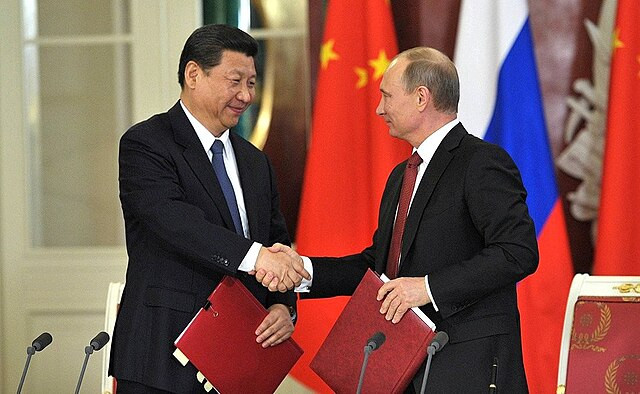U.S. counterintelligence officials are investigating new claims that Russia and China have expanded covert operations targeting American nuclear, defense and artificial-intelligence programs, relying not on cyberwarfare but on human seduction. The allegations, first reported by RadarOnline, describe a coordinated "honeytrap" campaign linking operatives tied to Vladimir Putin and Xi Jinping with efforts to extract sensitive information from Western scientists, engineers and government personnel.
The report cites U.S. and European intelligence sources who say the two governments have revived classic Cold War recruitment tactics, focusing on personal relationships rather than digital networks. The Oxford Dictionary defines a honeytrap as a scenario in which "an organisation or person uses romantic or sexual relationships to manipulate someone for political, personal, or monetary gain." According to the intelligence cited, that definition is being applied aggressively inside sectors handling nuclear material and advanced computing.
A senior Western counterintelligence official quoted in the report described seduction as "cheaper, harder to detect, and often far more powerful than cyberattacks." Investigators say this shift toward emotional exploitation reflects a broader strategic pattern: where cyber intrusions risk detection, human manipulation leaves fewer digital footprints and can persist for years.
RadarOnline reports that Russian intelligence services are allegedly coordinating with China's Ministry of State Security to identify and cultivate human targets in the U.S. and Europe. Their focus, according to the account, includes researchers working on nuclear fuel cycles, AI algorithms, quantum computing and defense-related engineering projects.
Former national security analyst Jeff Stoff is quoted as claiming that Chinese operatives have attempted to infiltrate U.S. academic institutions, venture-backed AI start-ups and Pentagon-funded research labs. His concerns align with broader anxieties reflected in federal warnings over foreign talent recruitment programs.
Additional testimony comes from James Mulvenon, chief intelligence officer at Pamir Consulting, who told RadarOnline that his suspicions were triggered after receiving multiple LinkedIn invitations from "the same type of attractive young Chinese woman." Such patterns, analysts say, often indicate attempts to establish digital relationships that lead to offline contact.
European intelligence officials cited in the report describe the alleged seduction-based strategy as the "new front line" in espionage. They argue that the convergence of human intelligence operations with high-value technical espionage marks a more dangerous phase-one that blends personal vulnerability with state-backed theft of core national-security material.
Analysts note that while cyber intrusions remain a major threat, the reported honeytrap campaign suggests Russia and China are expanding their toolkit. By developing long-term personal relationships with scientists or contractors, attackers can allegedly bypass hardened digital systems altogether.





